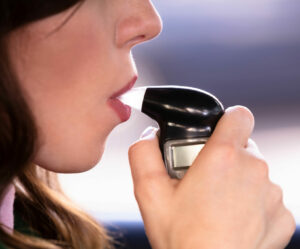
Across the US, you are considered to be driving under the influence of alcohol if you have a blood alcohol concentration over 0.08%. While that number is standard, what about the devices used to capture this data? Could these machines be flawed or have rounding errors? The sad truth is that yes, these machines can be flawed and imperfect evidence can end up being used to convict innocent individuals. Below, we take a closer look at BAC machine malfunctions and rounding errors.
Breathalyzer Device Malfunction
If you’ve been arrested and charged with driving under the influence, any good lawyer will take a closer look at your BAC test results if you submitted to a test. The result can tell a lot about the state of mind you may have been in and whether or not you face upgraded charges because of an extremely elevated BAC, but your lawyer will also examine the device itself.
These breathalyzer devices need to be regularly tested and calibrated in order to function properly. It’s similar to a firearm that needs to be cleaned and sighted in after use to ensure everything is working properly now and the next time you want to use it. Your lawyer will be able to check the calibration logs to determine when the machine was last serviced. Each state has different guidelines for how often they need to be calibrated, and the fact that they need to be calibrated at all suggests that they aren’t a perfectly reliable source of evidence. Your lawyer will examine your results and information about the BAC device to determine if there is an opportunity to challenge the validity of your arrest.
Device Rounding Errors
There have also been recent complaints about rounding errors with devices or how departments report their data. In fact, we recently read about a Minnesota man who is trying to have his charges dropped because his urine test results were supposedly rounded up from 0.079% to 0.08%. We all learned about rounding in elementary school math class, and while there are many instances where rounding a number up makes sense, when doing so means that someone will face criminal charges, rounding should be avoided. We’ll keep our eyes on that case to see if the Bureau of Criminal Apprehension really did round results up or if the defendant is grasping at straws.
It does seem that certain breathalyzer devices are set to round up if they don’t give a result to the thousandths place. So while someone who has a true BAC of 0.0794 may find their score rounded to 0.079 on a device that only goes out to the hundredths, someone with a true BAC of 0.07951 may find that the same device shows they have a BAC of 0.08. It may seem largely inconsequential in most cases, but when a blood alcohol reading is right on the threshold, poor device rounding could cause someone to face charges when they are still actually under the legal limit. Again, a good attorney will explore this possibility and look for ways to challenge the evidence being used against you.
Breathalyzer devices are an imperfect science, and if that’s all the prosecution has on you, we like our chances in court. Let us build a strong defense for you and pounce on the shaky evidence against you. For more information, or for help with a criminal matter of your own, reach out to the team at Appelman Law Firm today at (952) 224-2277.





